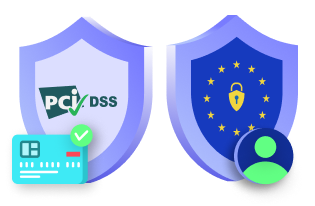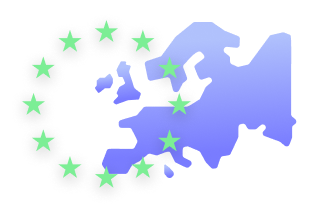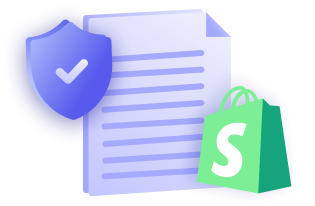General Data Protection Regulation (GDPR) — the most extensive and comprehensive set of rules that became effective on May 25, 2018, to provide maximum protection over the personal data of EU residents.
You need to consider a lot of factors towards making your website compliant with the GDPR. One of the key factors is the requirement of “user consent” prior to collecting or processing the personal information of individuals. And this requirement paved the way towards the formation of the Consent Management Platform (CMP).
Not only GDPR but also the other data privacy laws like California’s Consumer Privacy Protection Act (CCPA) that entered into force on January 1, 2020, give due importance to consent requirements.
So before moving into further details about consent requirements and the Consent Management Platform, get a big picture about the data privacy laws: GDPR and CCPA.
The legal basis for consent requirements
Usually, websites store small text files on users’ terminal devices (PCs, smartphones, tablets, etc.), called web cookies or simply cookies. They usually collect personal data of users to serve various purposes — “essential cookies” to improve user experiences, increase the loading speed of web pages, etc., and “non-essential cookies” to collect analytics data, perform targeted advertising, and so forth.
However, under GDPR, it is strictly illegal to use non-essential cookies or any other user-tracking mechanisms without obtaining an informed affirmative consent from the users. The CCPA also makes user consent necessary under certain specific conditions — opt-in consent for “selling” personal information of young adults between the age of 13 and 16 years; and parental consent for children aged under 13 years.
You’d like to know how the consent requirements differ in CCPA and GDPR. Have a look-see!
So if your website targets European or California residents, it is highly desirable to use a Consent Management Platform that helps you adhere to the data privacy laws, most-importantly the GDPR and CCPA.
Describing Consent Management Platform
Don’t you often see site-wide banners or pop-up notices when visiting some websites for the first time? These pop-ups help users understand a website’s data collection practices, and also lets them opt-in (accept) or opt-out (reject) the collection of their personal information.
If you own a website, you could implement all these using a Consent Management Platform.
Consent management deals with the technology that enables websites to obtain informed consent from users in order to collect their personal data through cookies or other tracking methods.
And, a Consent Management Platform helps businesses monitor and manage their consent management process, thus making it easy to achieve GDPR compliance.
Here’s the GDPR Consent Management Platform usage trends in the top 10K, 100K, and 1M websites across the globe.
CookieYes is a cloud-based Consent Management Platform that makes your use of web cookies comply with the GDPR and CCPA. Sign up for the free version and see for yourself! Also, check out the free cookie checker tool to identify the types of cookies present on your website and their purposes.
If you own a WordPress website, you’d want to give a try to GDPR Cookie Consent, the dedicated cookie consent plugin for WordPress (with 8,00,000+ active installs). The plugin helps make your cookie usage GDPR compliant with maximum ease and minimum time.
Why choose CookieYes?
You’d like to know the major features and functionalities you will have on choosing CookieYes as the Consent Management Platform for your website.
- Cookie banner
CookieYes helps you configure a cookie consent banner or a pop-up message box that informs users about your website’s cookie usage. You can add the cookie banner either on the header or footer of your website according to your wish.
- Switch between different consent types
CookieYes lets you choose the required consent type based on the types of cookies your website uses.
- Multilingual capabilities
Automatically translates cookie consent banners on multilingual websites. You could also change the default language of the consent banner from English to any other language supported by CookieYes — German, French, Italian, Spanish, Dutch, Bulgarian, Danish, and, Russian.
- Seamless customization
Lots of customization options (colors, fonts, styles, position, behavior, etc.) to make your cookie consent banner match your website’s style and theme. Moreover, you could add custom CSS to override the default appearance of the cookie banner.
- Straightforward user interface
CookieYes comes with an easy-to-use UI that helps you in quick implementation and hassle-free management of GDPR cookie consent banners.
Final thoughts
Consent — more than being a legal requirement, it helps your business build trust with your consumers. So when you set out to choose a Consent Management Platform for your website, go with the one that is designed to best meet the GDPR requirements, without compromising the ease-of-use, flexibility, and customizability.
| Disclaimer: This article is intended to be used for informational purposes only and does not constitute any form of legal advice. We recommend you seek a subject matter expert or your own attorney for any legal advice on choosing a Consent Management Platform that helps your website comply with the GDPR requirements. |






